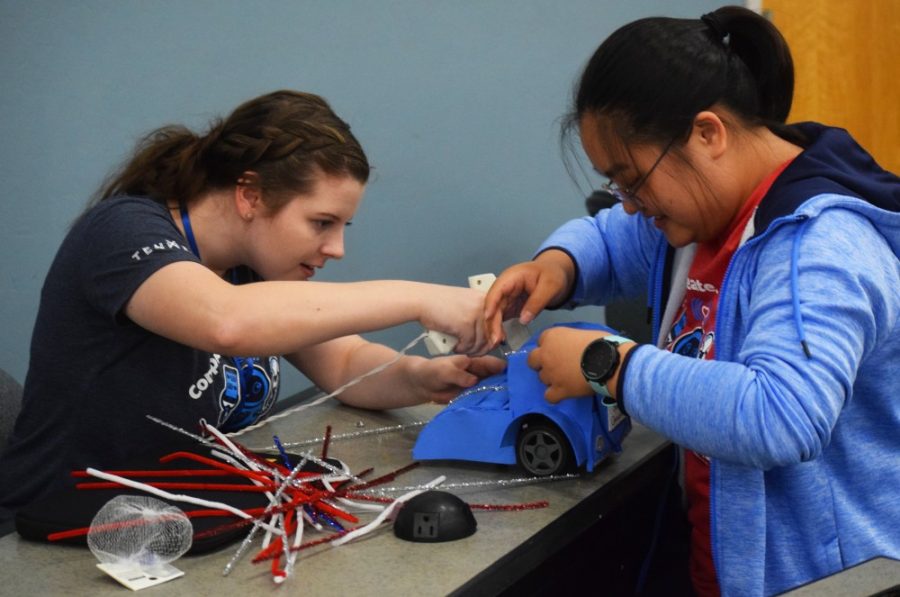The University of Arizona’s Fourth Annual Women’s Hackathon began with a kick-off event Oct. 19 on the UA Mall and later took place at the Main Library and the Integrated Learning Center Oct. 20-21.
The free event provided an opportunity for participants to develop tech-driven projects over the course of two days. Computer programming experience was not required and the event offered free childcare services and disability accommodations.
The entire weekend was co-sponsored by Microsoft, with GDG Tucson as an event partner.
The University of Arizona’s Women’s Hackathon was started in 2015 by a graduate student named Maggie Melo. Melo went to several Hackathons, but she said she never felt like she belonged at those events.
Jennifer Nichols, one of the lead organizers of the event, reflected on what inspired Melo to create this event.
“Maggie wanted to create an event where everyone could feel comfortable and participate, even when they did not believe they had a strong programming background,” Nichols said.
The kick-off event offered free drinks, food and admission to an inspiring keynote speaker, Charisse Richards, the CIO of Iron Mountain.
According to Colocation America, Richards was ranked in the Top 5 Most Influential Women in the Data Center Industry for 2018. According to the article, “when she is not developing new IT strategies, mentoring staff or examining new opportunities and challenges, Richards can be found at Women in Leadership Symposiums,” demonstrating her skills as a leader in the tech industry.
RELATED: What the hack? Hack Arizona brings out UA students, Tucson tech industry
“Sometimes we have to fall on our face,” Richards said. “Yeah, you could call it failures, but it’s a learning experience.”
At the UA Women’s Hackathon’s kick-off event, Richards went into detail about her background about why she found an interest in the tech industry and how she has inspired other women to not give up on their dreams in a male-heavy industry.
She said she wanted to be an English professor, but that was something her father did not approve of. He always supported her and her academic journey, as long as it was in the engineering field. Richards listened to her father and has been very successful since.
Richards also shared a more personal story during her speech. She shared that she was sexually assaulted while she was at the University of Arizona and this affected her greatly.
Richards was no longer passionate about school and engineering, and this led her to drop out of the university a semester shy of her bachelor’s degree. She went on to tell the crowd how she was able to overcome the adversity she faced and became successful due to her persistence and drive.
RELATED: Student teams show off tech skills, ideas at Hack Arizona
Shreya Batra, from Women in Information and Computer Science at the University of Arizona, was a sponsor for the event and hosted a workshop on Saturday.
Batra personally hosted a workshop called “Overcoming Imposter Syndrome,” and the other two officers with Batra at the event hosted the workshop “Python for Programmers.” This was Batra’s first year performing workshops, but she has been a director for Hack-Arizona for nearly three years.
“I think it will be a really great event,” Batra said. “It is so hard to put on a Hackathon, so I am amazed by how clean and beautiful everything looks.”
The “Overcoming Imposter Syndrome” workshop was a presentation for women who feel like they are an imposter in their field.
“This was a time for us to share situations when we have been feeling like imposters,” Batra said. “That is something that is really common for women in all fields to experience.”
Follow Janelle Ash on Twitter









